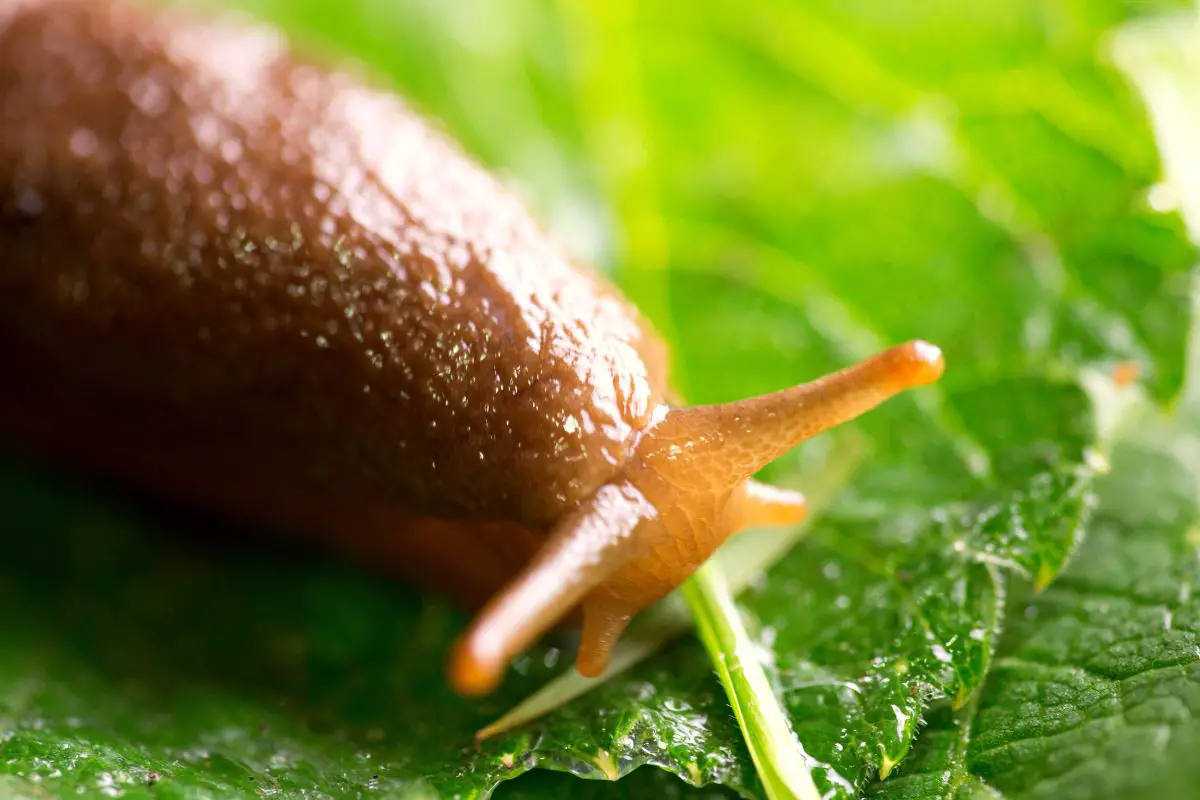Slugs in Compost | Is it okay to have slugs in the compost?
Slugs are not only a nuisance because of their reputation for eating plants. But they’re also, quite frankly, a little bit gross. If you can get over the ‘yuck’ factor, slugs are actually pretty safe and can actually be good for your compost. Let’s see how!
And you’re here now, so your morning probably went something like this:
You wake up and go and check on your compost pile.
This is only to find a couple of slugs that have wandered into your bin.
Maybe this disgusts you a little bit and you think about how you’re going to get rid of them.
And if there are any more in your bin somewhere.
Don’t fret. Unlike if you just found them in your garden, slugs are a good thing for your compost pile.
How? You might be wondering. Well, let me explain.
Related Articles: Bokashi vs Compost and Compost Bin vs Worm Farm
The Potential Benefits (for You & the Slugs)
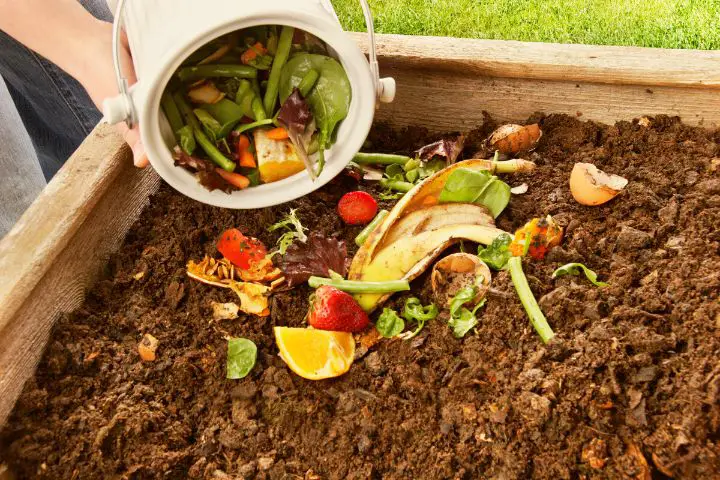
Is it safe to have slugs in compost?
Well, did you know that slugs help with the decomposition process by eating decaying matter?
And the compost also offers them a constant food source and a dark and damp place to live.
(So, not very different from the typical environment of my teenagers.)
It’s the perfect habitat for them.
Some species of slugs don’t even eat fresh plants because their mouths aren’t strong enough.
So they often have to wait for plants to rot before being able to eat them.
So, you see, it’s a mutually beneficial arrangement.
In addition, when they die, their bodies will contribute to the compost.
Though, you will then have to tolerate quite a foul smell as they decompose (and quickly too).
They might also attract flies.
(Sorry about the vivid imagery.)
Why You Shouldn’t Take Them Out
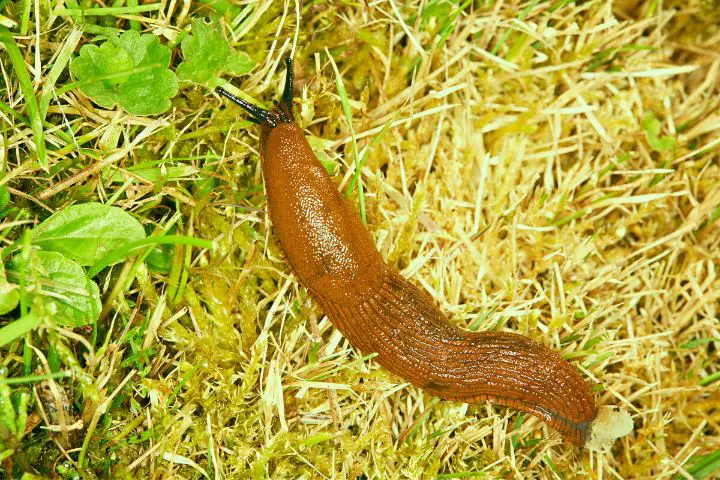
I know that despite my explanation, some of you may still be thinking about taking the slugs out.
And for good reason. You might be quite worried about them multiplying indefinitely until you have a big slug problem.
And they’re hermaphroditic, so they can impregnate themselves.
This means it just takes one to create thousands of others.
That said:
Slugs are unlikely to survive long enough in the compost to do this.
They’re likely to get eaten by other predators in the compost.
And their eggs will most likely be squashed by the weight of the compost or also eaten by other critters.
And given that by the time you use the compost in your soil, they’re already dead:
I say you’ve got little to worry about.
When to Worry About Slugs
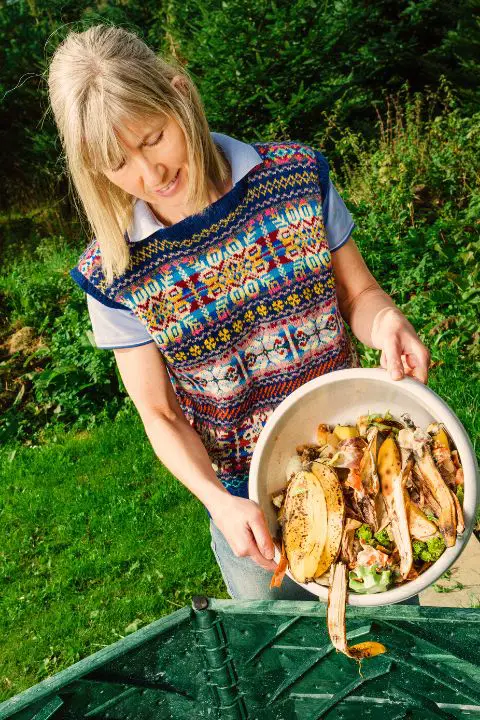
Now, all of this said:
If you find yourself in a situation where slugs are continually reproducing, this could be an indication that:
- Your compost is far too moist and you should add some brown material (carbon-rich) such as dried grass or leaves.
- You’re not turning your compost enough to ensure that the eggs are crushed.
Other than this, you’re all good.
You might even find that you have slugs that eat other slugs!
Leopard Slugs (and Their Carnivorous Tendencies)
Leopard slugs are one of the most common slugs in the world.
They’ve also got very unique eating habits.
So while they do enjoy plants and fungi like a typical slug.
They also enjoy eating the flesh of others of their kind.
(Okay, again, sorry for the imagery.)
You can identify them by their black spots and stripes. Hence, where the “leopard” part of their name comes from.
They also have no visible shell.
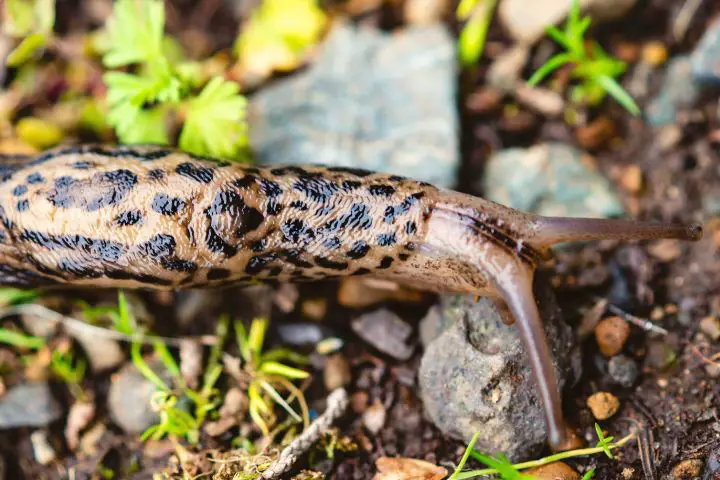
And If You’d Still Like to Get Rid of Them
It’s often said that prevention is the best cure.
And so, it’s best to start by keeping them from entering your composting heap at all.
If you’re using a composting bin, I suggest switching to one that is enclosed to keep them from getting in.
You’d also do well to put some sort of grit around your compost.
Snails hate walking on dry or scratchy things.
You could use:
- Crushed up egg shells.
- Gravel.
- Or Sawdust.
You could also put some slug traps around the compost.
Just fill bowls with beer that’s level with the soil.
The slugs will get attracted to the smell of the beer, climb in, and die in it.
But if it’s already too late, here are a few other things you can do:
Pick Them Out
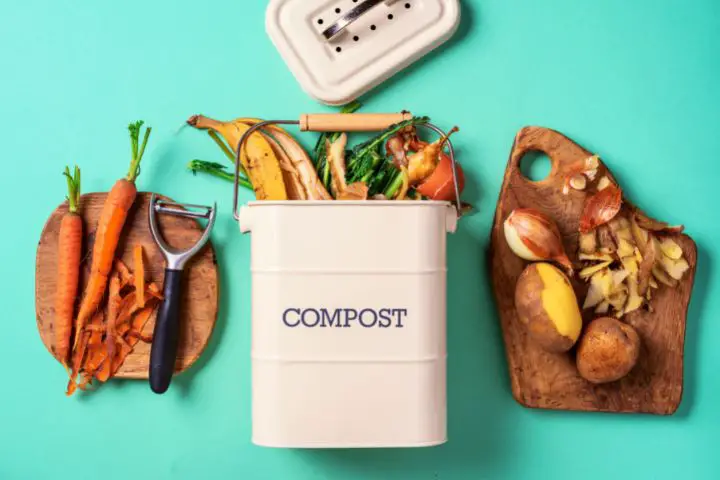
You’d not likely enjoy this part.
But you could, technically, pick them out of your compost bin by hand.
This is best done when they’re active at night when it’s cool and dark.
Now, you’ll probably want a pair of gloves to do this.
And then afterward you could either leave them somewhere far away from your garden.
Or sentence them to death.
And you can do this quite humanely.
Well, as humane as a death sentence can be.
The best way to go about this is to just toss them into some salt water.
Outsource the Job to Slug-Eating Predators
Naturally, the slug has many predators.
One way of doing this is to create a small pond area with rocks as shelter.
This’ll attract frogs who, should you happen to release some slugs with your compost into your garden, will make quick work of them.
You could also try to attract hedgehogs by creating small hideouts for them with piles of logs.
Hot Composting
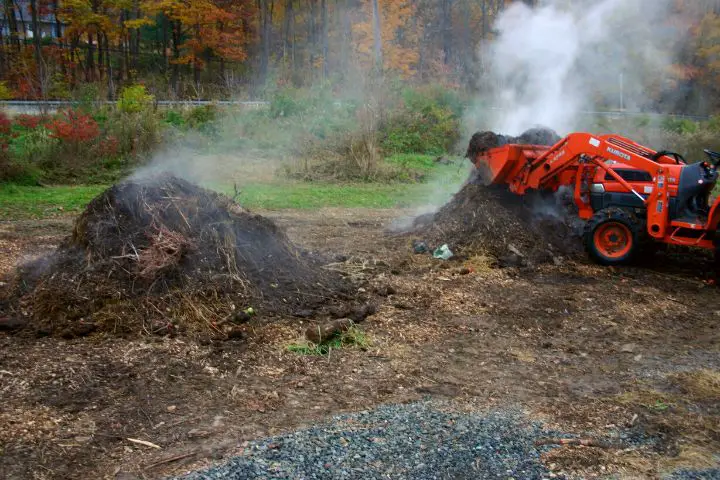
The benefits of hot composting are not just that it creates an uninhabitable environment for slugs.
It also produces compost much faster than normal and kills weeds and other pests in the compost.
Composting in this way involves monitoring its temperature with a thermometer and when it gets a bit too cold, turning and mixing it.
And also adding some water.
If it gets too hot, add carbon-rich materials and more water.
Avoid Pesticides To Get Rid of Slugs
Do not use pesticides or slug pellets.
Along with killing slugs, it’ll also kill other beneficial life which helps in the process of composting.
Composting relies on bacteria and various forms of life to continue the process of decomposition.
They’re Your Allies (Mostly)
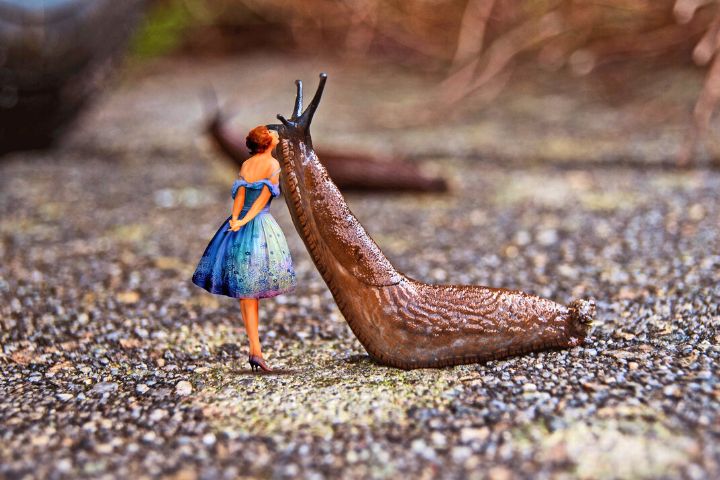
Overall, you don’t have to worry about slugs.
They’re not likely to be a problem.
This is unless they’re reproducing extremely quickly.
So, if you can tolerate them, don’t worry.
And enjoy the added benefit of faster decomposition
Frequently Asked Questions
Is it okay to have slugs in the compost bin?
Yes, it’s okay to have slugs in the compost bin. They may even assist with the decomposition process.
Will Slugs grow in a Bokashi Bin?
No, they shouldn’t! Bokashi is an enclosed anaerobic system, the only way slugs could get in is if you leave your Bokashi bin open enough to allow that to happen.
Should the compost bin be open or closed?
If you want to avoid having slugs in your compost, then it’s best to keep your compost bin closed. Keeping it open will invite all sorts of critters.
Are slugs useful?
Slugs are very useful, particularly in the process of composting. They’re not likely to survive long enough in your compost to make it to your plants either.

